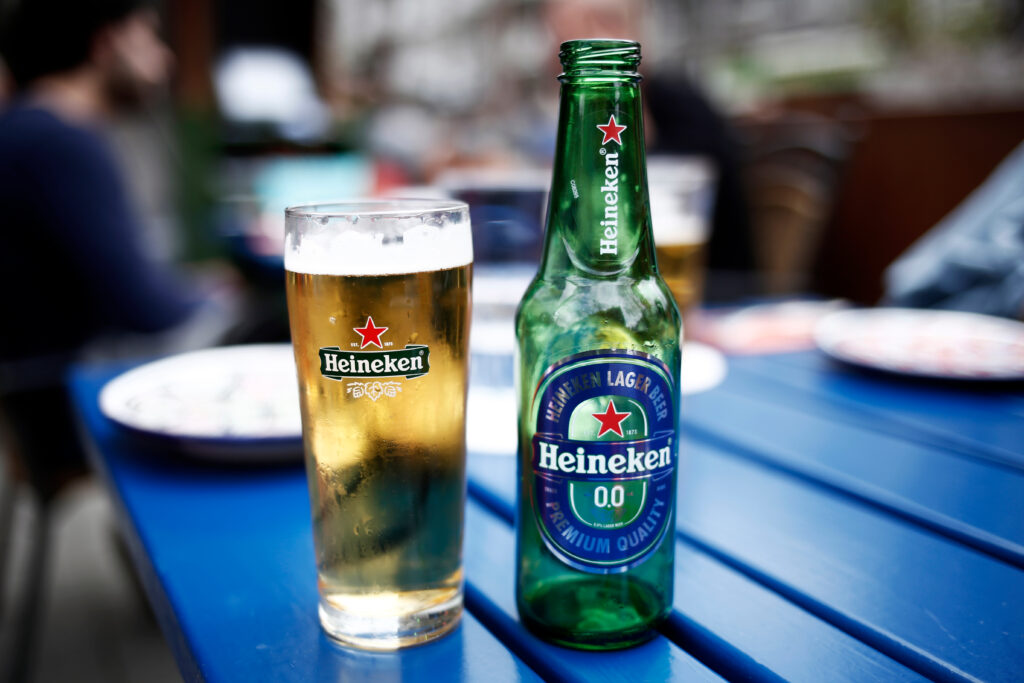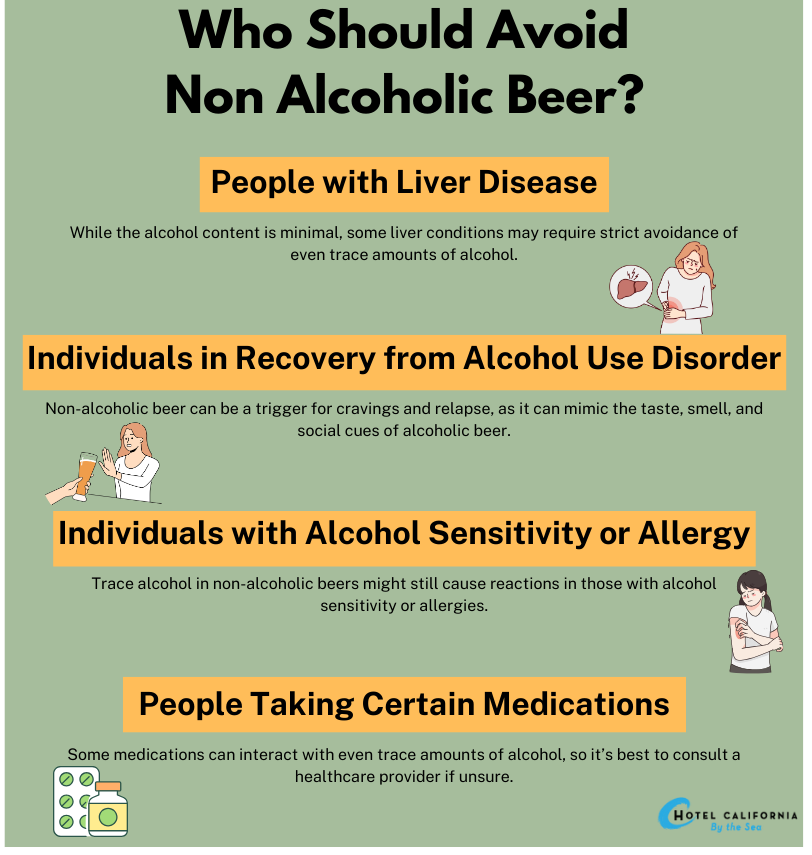Is Non-Alcoholic Beer bad for your Liver?
With the sober curious movement on the rise, non-alcoholic beverages such as non-alcoholic beer have become more and more popular. Beer is one of the oldest and most widely consumed alcoholic drinks in the world. Now a new generation of young drinkers are experimenting with non-alcoholic beer. A new generation of beer. This is partly due to the popularity of a health and wellness-conscious lifestyle where people are becoming more in tune with their health and looking for ways to incorporate wellness even when participating in social activities that aren’t necessarily considered healthy.

According to the World Health Organization, alcohol is a toxic psychoactive substance that contributes to roughly 3 million deaths per year worldwide. Because of this alarming statistic, people have begun a non-alcoholic drink movement. By removing alcohol, it removes toxins that can increase the risk of many different chronic diseases including heart disease, liver disease and mental health diseases. But is non-alcoholic beer actually a better or safer option? Is non-alcoholic beer for everyone?
How is Non-Alcoholic beer made?
Non-alcoholic beer has been marketed as a way to enjoy the traditional taste and experience of a beer with health and wellness in mind. It is seen as a great way to reduce overall alcohol intake and remove the negative side effects of alcohol consumption. It is seen as a better option for the health-conscious consumer who likes to socialize and party without feeling the aftereffects the next morning when they go to the gym or go on a morning hike.
Beer is traditionally made by fermenting grains. Microorganisms in the fermentation process break down sugar in the grains and turn it into alcohol and other byproducts. Alcohol-free beers take it a step further by removing the alcohol by either boiling it off or using other types of filtration. When the non-alcoholic beer is filtered both the water content and alcohol content are removed. This means other additives such as carbonation, sugar and other flavorings need to be added back into the beer to give it the same taste and feel without the alcohol.
According to the FDA, non-alcoholic beer must not exceed the limit of 0.5% alcohol by volume to be labeled as non-alcoholic. This means non-alcoholic beer is beer that contains less alcohol than the legal limit or beer with no alcohol. This volume of alcohol is so little it would take many many beers in order to get even a little close to feeling alcohol’s effects. This also means that some beers that are labeled alcohol-free aren’t actually completely alcohol-free. In fact, most non-alcoholic beers are not actually completely alcohol-free.

Is Non-Alcoholic beer bad for your Liver?
The liver is the largest internal organ in the body and one of the busiest organs. Its job is to take nutrients from the food you eat and convert them into substances your body can use. It also helps to store nutrients and release them into your cells when needed. The liver works to break down alcohol and other substances and transforms them into something your body can use for energy or break down to be eliminated from the body.
We all know the effects of alcohol on the liver. The body filters alcohol through the liver. When alcohol is abused, the liver has to work overtime to continuously filter out high levels of the toxin which can inhibit the function of the liver and can hinder its ability to filter out the toxin effectively. This leads to liver damage, fatty liver disease and even liver failure.
Non-alcoholic beer isn’t harmful to the liver. A study published in the Journal of Alcohol and Alcoholism found there to be no links between non-alcoholic beer and liver damage in healthy adults. However, those who have existing liver conditions might have difficulty filtering even the smallest amounts of alcohol in some of the beers labeled as non-alcoholic. We know that most still contain traces of alcohol.
Check Your Insurance Coverage for FREE
Find out if your insurance covers addiction treatment in minutes. We accept most insurance!
Is Non-Alcoholic beer actually a healthier alternative?
One of the main benefits of non-alcoholic beer is the elimination of alcohol or fewer units of the toxic substance. But just because a beer no longer contains alcohol, doesn’t necessarily mean it’s healthier to consume. Non-alcoholic beer offers little to no nutritional value. In fact, it may even contain more calories compared to traditional beers because of the additional ingredients added to create the same taste, flavor and experience as a traditional beer. Not usually labeled, but non-alcoholic beers contain added sugars and artificial sweeteners which can lead to dental issues or weight gain.
In a study from scientists at Cornell University, researchers found that non-alcoholic beer was a breeding ground for bacteria such as E. coli and salmonella. The report, which was published in the Journal of Food Protection found that E. coli and salmonella were able to survive in both low and non-alcoholic beer for up to 63 days. They also found that microbial colonies expanded more rapidly in the non-alcoholic beverages. The scientists believed that due to the lack of alcohol, which acted as a natural disinfectant, the bacteria was able to thrive and grow.
Who should avoid Non-Alcoholic beer?
Non-alcoholic beer may be a great alternative for those who are looking to intake less alcohol in general while still being able to enjoy the social and cultural aspects of drinking beer. However, it is not for everyone. Studies have shown that those with an alcohol use disorder would probably not benefit from non-alcoholic beers. Here’s why:
- The idea of drinking alcohol can be triggering enough to make your brain release more dopamine and even trigger a relapse.
- Non-alcoholic beer can also make you act the way you did when you were heavily drinking.
- Studies show that non-alcoholic beers can contain more alcohol by volume than what is actually listed on the label. This can lead to a relapse.
- Those with an alcohol use disorder may also have liver conditions which can be heightened with even small traces of alcohol contained in non-alcoholic beer.
- The smell or taste of non-alcoholic beer can be so similar to and mimic traditional beer, that it may trigger a relapse.
Reach out to Hotel California by the Sea
We specialize in treating addiction and other co-occurring disorders, such as PTSD. Our Admissions specialists are available to walk you through the best options for treating your addiction.
Are you struggling with Alcohol Use Disorder?
We live in a society and culture that is obsessed with drinking and obsessed with alcohol. We have also grown into a trend of health and wellness, especially among the younger generation of adults. The combination of the two trends leads to a rise in the popularity of non-alcoholic beverages and beer. However, this might not be the answer for those who still struggle with alcohol abuse and alcohol use disorder. Professional treatment programs such as Hotel California by the Sea provide the tools and resources clients need to overcome their alcohol addiction.
We have a specialized program to help treat those with alcohol abuse disorders. Clients can enter our program through all levels of care including detox, residential and outpatient treatment. We utilize effective and rigorous treatment methods such as CBT, DBT and family therapy. Hotel California by the Sea is dedicated to helping our clients reach their goals of sobriety and achieve recovery.
References:
https://www.everydayhealth.com/diet-nutrition/everything-you-need-to-know-about-non-alcoholic-beer
https://www.verywellmind.com/dangers-of-drinking-non-alcoholic-beer-63665
https://www.bbcgoodfood.com/health/nutrition/is-low-alcohol-beer-healthy
https://www.mensjournal.com/news/hidden-danger-non-alcoholic-beer-cornell-study
